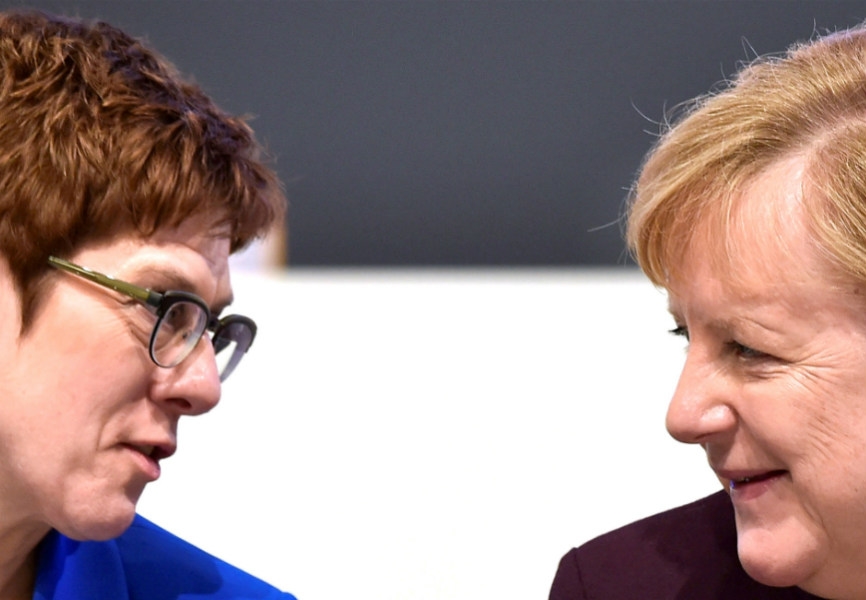On 10 February,
Annegret Kramp-Karrenbauer, the head of
Angela Merkel's Christian Democratic Union (CDU)—and presumptive heir to the chancellorship—announced that she would be resigning as party leader, a position she narrowly won just over a year ago. AKK, as she is known, was Merkel's preferred successor; the announcement marks the true end of the Merkel era. That should worry
Europe a lot more than it does Germany.
AKK's short tenure as head of the CDU was marked by a number of unforced errors, and she never found traction among the German populace. But the final straw that forced AKK to step aside was the decision of the local CDU chapter in Thuringia to ignore her order to refrain from voting alongside the far-right Alternative for Germany (AfD) to elect a leader to the state parliament. That violated the long-standing agreement of establishment German parties to refuse to work with
the far right, forcing Merkel to step in. There was no recovering from that—AKK bowed out.
It is tempting to blame AKK for not being the same caliber of political operator as Merkel. But AKK also had the bad luck to be the one responsible for uniting a CDU split by the issue of refugees, a division laid bare by Merkel's 2015 announcement that Germany would take in more than a million.
The race to succeed AKK is on; among the front runners to replace her are Health Minister Jens Spahn and Prime Minister of North Rhine-Westphalia Armin Laschet, as well as the runner-up in last year's CDU contest, Friedrich Merz.
But the reality is that Germany doesn't change all that much if it's AKK at the helm of the CDU or somebody else. Nearly 70% of Germans continue to have a favorable opinion of
the EU, and roughly 70% also believe their economy has been strengthened by the economic integration of Europe. As the fourth richest country in the world—and one of the least corrupt—it has social safety nets that work.
This is not to say Germany is immune to the antiestablishment push sweeping through other advanced industrial democracies lately. But unlike most others grappling with the phenomenon, Germany's electorate isn't running to the political extremes in droves (though the recent rise of AfD is worth monitoring); instead, they are opting for parties like the Greens, who represent a break from traditional German politics but remain firmly within the pro-EU fold. There are plenty of countries that wish they had these problems.
But German leadership matters for many more people than just Germans. For the better part of her nearly 15 years in power, Merkel has made German leadership indispensable to the functioning of the EU, especially in times of crisis. That has meant everything from standing up to Vladimir Putin over his land grab of Ukraine to shepherding along an unpopular Greek bailout needed to keep the Eurozone crisis under control. Even that
2015 refugee decision that cost Merkel so dearly domestically was critical as leverage to govern the EU as a whole. For the past decade, every time the Europeans have come to an existential crossroads, it has been Merkel who has shown them the way forward.
The next German chancellor won't be Angela Merkel and won't have near the political capital to take the difficult European decisions that she made. At a time of US retrenchment,
UK dysfunction, and growing global instability, Germany will be fine no matter whom the CDU selects. The EU is another matter.
This article originally appeared in the 2 March 2020 issue of TIME magazine. To learn more, read Germany struggles to find successor for Merkel, Politics in Pictures: a visual guide to Germany, German politics is a mess, and no one is as worried about it as they should be, and A distracted Angela Merkel is bad news for the world.

 Outgoing CDU leader Annegret Kramp-Karrenbauer and German Chancellor Angela Merkel. REUTERS.
Outgoing CDU leader Annegret Kramp-Karrenbauer and German Chancellor Angela Merkel. REUTERS.
